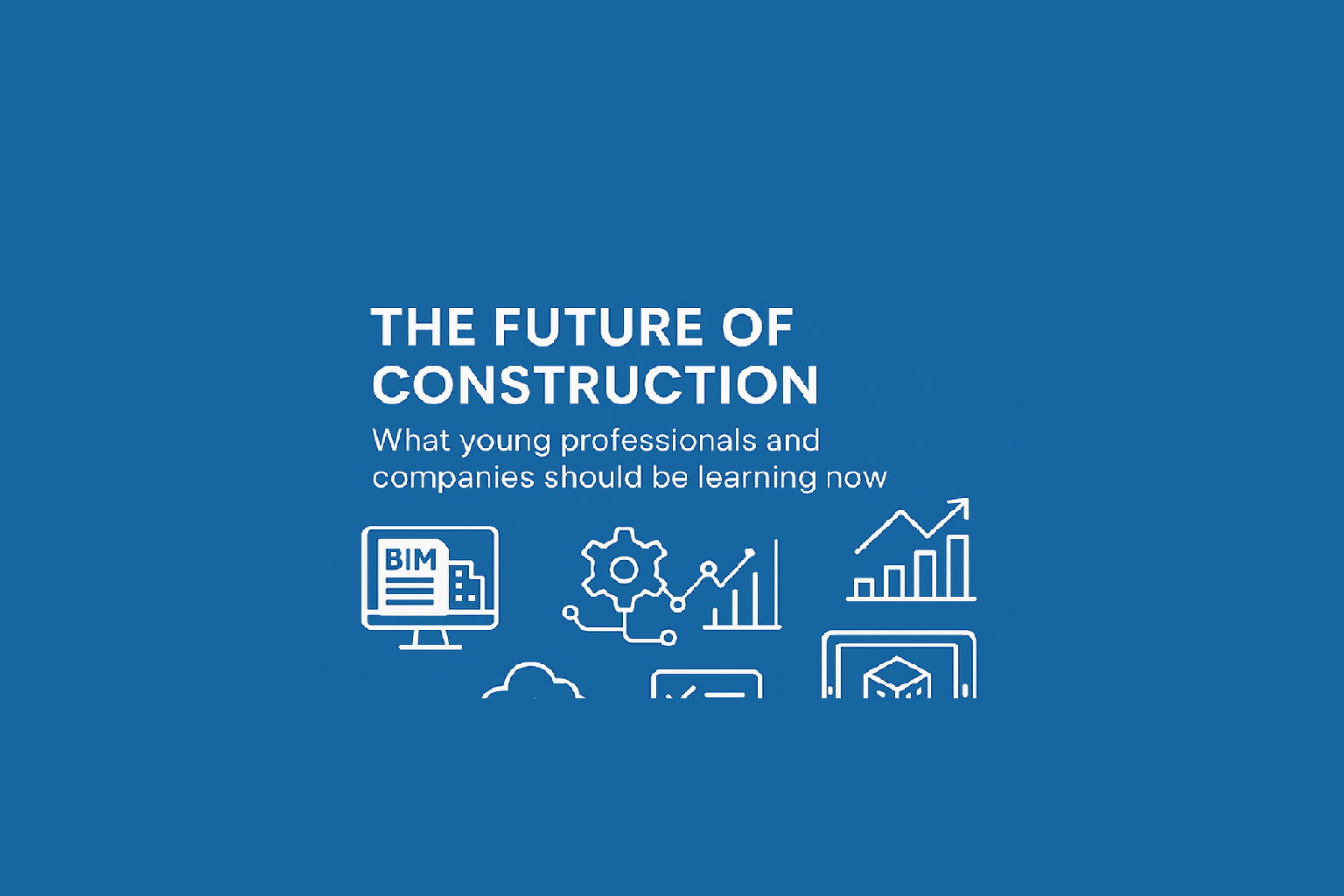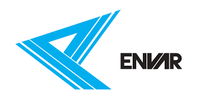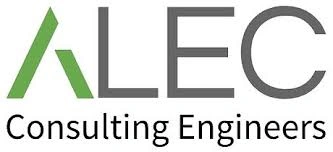
The construction industry is in the midst of a major digital shift. Once defined by blueprints and boots on the ground, today’s construction projects are increasingly shaped by data, automation, and intelligent design. While hard hats remain essential, digital skills are quickly becoming just as critical, especially for the next generation of construction professionals.
For young professionals looking to make their mark and for companies seeking a competitive edge, now is the time to invest in digital competencies. The future of construction is smart, connected, and collaborative—and being ready means building the right skill set today.
Why Digital Skills Matter in Construction:
Digital transformation isn’t a buzzword; it’s a survival strategy. Projects are becoming more complex, timelines are tighter, and client expectations are higher. This demands new tools and workflows that streamline processes, reduce errors, and increase efficiency.
Technologies like Building Information Modelling (BIM), digital twins, reality capture, drones, AI, and cloud collaboration platforms are now mainstream. But technology is only as good as the people using it. That’s why having the right digital skills is no longer optional—it’s essential.
Key Digital Skills Every Young Professional Should Learn:
- Proficiency in BIM Software
Building Information Modelling is now the backbone of modern construction planning and coordination. Tools like Revit, Navisworks, and Archicad are fundamental for design collaboration, clash detection, and project visualisation. Understanding how to navigate, modify, and extract insights from a BIM model is quickly becoming a baseline expectation.
- Data Literacy
With so much data generated across a project’s lifecycle—from design and procurement to construction and handover—knowing how to interpret and apply that data is critical. Data literacy involves understanding how data is collected, managed, and used to make informed decisions. This includes using dashboards, business intelligence platforms, and simple analytics tools.
- Familiarity with Digital Collaboration Platforms
Software like Autodesk Construction Cloud, Procore, and BIM 360 is central to keeping teams aligned. Professionals who can manage and communicate within these ecosystems efficiently are invaluable to fast-moving projects. These platforms streamline document control, RFIs, approvals, and site reporting.
- Understanding 4D and 5D Planning
It’s not just about the ‘what’—it’s about the ‘when’ and ‘how much.’ Linking models to time (4D) and cost (5D) data helps teams visualise sequencing, mitigate risk, and control budgets. Young professionals who can support this level of integration will play key roles in delivering smarter, safer, more efficient builds.
- Basic Coding and Automation Awareness
While not everyone needs to be a software engineer, having a basic grasp of scripting languages like Python or Dynamo (for automating tasks in Revit) is a huge advantage. It allows for customisation, automation, and innovation in design workflows.
What Companies Should Be Doing Now:
For construction companies, staying competitive in a tech-driven market means building a workforce that is ready for the digital future. Here’s how:
- Invest in Training: Upskill your teams regularly with structured learning in BIM, data handling, cloud platforms, and digital design tools. Partner with RTOs or industry bodies that specialise in AEC tech training.
- Encourage Mentorship Across Generations: Pair digital natives with experienced industry professionals to foster mutual learning. This approach balances traditional wisdom with technological fluency.
- Promote a Culture of Innovation: Give teams room to explore and trial new tools. Reward efficiency gains and process improvements driven by digital initiatives.
- Hire for Adaptability, Not Just Experience: The best hires today are often those who are agile, curious, and eager to learn, not just those with the most years on site.
The construction site of tomorrow will look very different from today’s. The rise of connected workflows, intelligent models, and automation will continue to transform how buildings are designed, coordinated, and delivered. Those who embrace digital skills—whether a recent graduate or a seasoned project manager—will be the ones shaping that future.
But learning where to begin—and how to apply these tools effectively—can be a challenge.
That’s where Draftech comes in.
We work with construction companies and professionals across Australia to bridge the gap between traditional practices and digital excellence. Whether you’re just starting out or looking to improve specific workflows, we can help:
- Upskill Your Team: Through tailored training in BIM software, model coordination, and digital collaboration platforms, we ensure your team can confidently deliver in a digital environment.
- Support Real Projects: Draftech doesn’t just train—we integrate. Our specialists can join your project team to provide hands-on support, ensuring digital tools are applied effectively to meet real-world deadlines and goals.
- Improve Efficiency Through Automation: We help identify repetitive tasks that can be automated and show your team how to streamline workflows using Dynamo, Revit plugins, and other tools.
- Build Confidence in Data Management: From setting up Common Data Environments (CDEs) to managing structured handover, we give your team the knowledge and systems to handle data more effectively.
Because in the end, it’s not just about having the tools—it’s about knowing how to use them to drive better outcomes.
Testimonials
Thank you for all your efforts on our projects; they have been an invaluable contribution to their success. We look forward to working with you on future projects.
Ian Ferguson MPM Group
Jess and Karl at Draftech were amazing. The communication from the start was prompt, and the entire process was extremely easy. We needed their knowledge on Air Schematics, and they had made one up for our buildings that we service. Thanks so much, and we will be using you guys in the future. Cheers, Air Control Australia.
Greg Colebrook AirControl Australia
With Draftech’s thorough understanding of building services modelling and close attention to detail, Forth has been afforded the opportunity to outsource some of our BIM projects with absolute confidence in the accuracy of the final product.
Gary Murdoch Forth Consulting
Very professional and efficient organization. Delivered a great product to a tight deadline.
ACE Power
Karl and the team are very professional and have a vast knowledge of BIM coordination.
Dwayne Willaims Babinda Electrics
We had multiple large projects with tight deadlines and needed a company we could trust. The teams delivery, attention to detail and understanding of what is being designed is always executed to a high standard.
Martin O’Donovan Envar Engineers
Draftech offered a flexible and reliable approach to working collaboratively with our team. They met our expectations and quality requirements and also offered up new ideas.
Draftech have proven to be a valuable and trustworthy resource and we will continue to work with Draftech on other projects.
Simon Marsden Umow Lai
Draftech is different from others in the professionalism and features they provide.
The ability to walk through projects in real time online provides invaluable insight into problem areas and helps provide an efficient resolution on the spot without many phone calls, emails and the necessity for us to paw through countless drawings to understand the issues.
Todd Morris Manager - Air mech
Draftech were put forward to FIP Electrical as the solution to Coordinate, Model, carry out clash detection, provide Electrical Services Shop Drawings, as built documentation and completed electrical model.
Simon Thorpe FIP Electrical
In close collaboration Draftech set up all our systems and model deliverables. In this process Draftech have proven to be a valuable resource for us and demonstrated commitment, understanding and professionalism.
David Skelley DJCoalition
Draftech’s attention to detail and proactive nature throughout the project assisted us in identifying issues before becoming evident on site, saving us both time and unexpected costs.
Matt Payne PJM Engineering Services
They delivered very high quality Revit models and associated 2D documentation at key milestones, working to a tight budget and in strict accordance with the Architects’ BIM requirements.
Peter Thomas Geoff Hesford
We found Draftech’s work to be of high standard and the team delivered exactly as agreed, in fact, when we considered the project complete, Draftech put further resources into the project as they were not satisfied.
John Johnson Beca
Engaging Draftech during design gave us the tools to make smart decisions.
Hansen Yuncken Design Manager - Michael Harkins
The drafting service is timely, reliable and fit for purpose for the built environment.
Peter Harvey Harvey Industries
Draftech stands apart from other drafting services that we have previously used in their attention to detail and ability to adapt to the individual client’s requirements.
Doug Holt McCaig Aircon
I can confidently recommend Draftech as a solid and reliable supplier, and experts in their field. I look forward to working with them again in the near future.
Chris Behan Norman Disney & Young
After seeing the benefits Draftech provided us on the Townsville Hospital Redevelopment we have set up a relationship with Draftech and intend to continue to use their BIM knowledge and skills for our future projects.
Brad Lund Energy Power Systems
Draftech has no competition as they are in a class of their own.
John Boyes Babinda Electrics
Draftech Developments Drafting and Design Capabilities, in conjunction with their outstanding level of Client service and support has provided great solutions to our engineering and Drafting Design portions within our Gorgon Barrow Island Project.
Aaron Hazelton Applied Electro Systems Pty Ltd
Draftech set up necessary systems and workflows very quickly, but also setup auditable estimating and weekly cost tracking processes that we utilised, requiring little maintenance.
TOM PURDON MPM GROUP
































